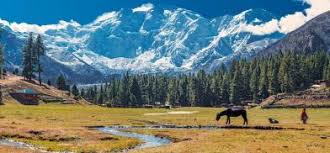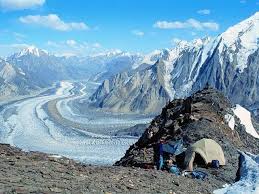CPEC, a blessing for Pakistan’s underdeveloped regions

Islamabad: China-Pakistan Economic Corridor (CPEC) is nothing less than a blessing for Pakistan as iron brother China has taken it on its own to develop the neglected areas.

For decades, the Gilgit-Baltistan region called for development but due to limited resources Pakistan could not satisfy the locals. And then China stepped in to help. The all-weather friend, through the CPEC, transformed the underdeveloped but beautiful region into a place to visit.
Formerly known as the Northern Areas, Gilgit-Baltistan is a region administered by Pakistan as an administrative territory, and constituting the northern portion of the larger Kashmir region which has been the subject of a dispute between Pakistan and India since 1947, and also between China and India.
It is the northernmost territory administered by Pakistan. It borders Azad Jammu Kashmir to the south, the province of Khyber Pakhtunkhwa to the west, the Wakhan Corridor of Afghanistan to the north, the Xinjiang region of China, to the east and northeast, and the Indian-administered Jammu and Kashmir and Ladakh to the southeast.

The territory of present-day Gilgit-Baltistan became a separate administrative unit in 1970 under the name ‘Northern Areas’. It was formed by the amalgamation of the former Gilgit Agency, the Baltistan district and several small former princely states, the larger of which being Hunza and Nagar
In 2009, it was granted autonomy and renamed to Gilgit-Baltistan via the Self-Governance Order signed by then President Asif Ali Zardari, which also aimed to empower the people of Gilgit-Baltistan.
Gilgit-Baltistan covers an area of over 72,971 kilometres and is highly mountainous. It had an estimated population of 1.8 million. Gilgit-Baltistan is home to five of the ‘eight-thousanders’ and more than fifty peaks above 7,000 metres.
Three of the world’s longest glaciers outside the polar regions are found in Gilgit-Baltistan. The main tourism activities are trekking and mountaineering, and this industry is growing in importance.
Hassan Nasar 46, has returned from Bangkok, the capital of Thailand, and has established business of precious and semi-precious stones business in Gilgit, the provincial capital of GB. Since the region became a gateway for the multi-billion dollar CPEC, banks, investors, food chains are moving into the mountainous region.
“I have moved here (Gilgit) from Bangkok in April this year and invested a hefty sum because this city is the future business hub after the CPEC becomes fully operational,” said Nasar, owner of Gems Gallery located in the beautiful city market.
Scores of people in the picturesque market in the city, which is about 600 kilometers from Islamabad were convinced the CPEC was turning to be a game-changer and was changing their fortunes.
The multi-billion-dollar CPEC – a network of roads, railways, and pipelines – is aiming to connect China’s strategically important northwestern Xinxiang province to the port of Gawadar in far away in Balochistan.
The corridor will give China easy access to Africa and the Mideast and will make Pakistan earn billions of dollars and spur business activities along the road network replacing the fabled Silk Road.
Nasar, however, said while business prospects are fabulous, the weather played a spoiler, referring to the harsh winter season from November to March when most of the areas get blocked by heavy snow.

The Gilgit-Baltistan government has developed the infrastructure to attract more tourists and investors over the past five years. The region hosts several beautiful valleys including Nagar, Hunza, Gilgit, Attaabad, Khaplu, Shiger, Gupis, Astore, and Skardu Valley thus attracts the local and foreign tourists in the summer season.

According to the officials, the region has great energy potential due to huge water resources. They believe that the region can generate over 50,000-megawatt electricity from water.
The region is accessible through Karakoram and Kaghan-Naran highways. But the Naran-Babusar road, which connects Chillas district of Gilgit-Baltistan, remaining close for six months during winter due to heavy snowfall.
The local people use 784 kilometres Karakoram Highway in winter. The road is considered as the eighth wonder of the world due to its high elevation and crisscrossing highest mountains.
It was completed in 20 years by Chinese and Pakistani engineers and around 1,000 people lost their lives during the construction. The road passes through extremely dangerous Rocky Mountains overlooking the fast-flowing Indus river, thousands of feet below.





